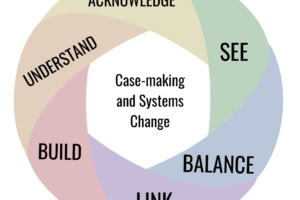The Headline
ArtsEd Tennessee is launching a free online course, Building a Strong Voice for Arts Education in Tennessee. The course is designed to advance knowledge and understanding of arts education advocacy and provide immediate action steps for engagement. The learning modules are appropriate for a wide audience, including teachers, students, administrators, parents, arts and culture organizations, and community and philanthropic leaders.
As I’ve noted in other publications, this project represents both the science of advocacy – building blocks for understanding what effective advocacy looks like – and the art of advocacy with calls for improvisation, adaptability, and generative thinking, all characteristics of art-making. (Source: Case-making and Systems Change in Arts and Cultural Education)
ArtsEd Tennessee is grateful to the County Music Association Foundation for financial support and Tiffany Kerns and Emily Schleh for their guidance throughout the project. My colleague Stephen Coleman, President of ArtsEd Tennessee, and I provide most of the content, with insightful interviews from national and local leaders. Project Coordinator Dr. Heather Casteel provides the design and structural wizardry. Many others have provided input and encouragement; a full listing of acknowledgements is available HERE.
What You’ll Learn
The course is divided into three modules with introductory stories and sub-topics:
- Module 1: The Role of the Individual in Advocacy
- See Yourself as an Advocate*
- Understanding the “Why” of Arts Education *
- A Brief History *
- See Yourself in the System *
- Understanding Systems Change *
- Understanding Your Role in the System *
- Module 2: Existing Laws and Policies that Impact Arts Education in Tennessee
- How Education Laws and Policies Are Created
- Education Governance
- How a Bill Becomes a Law in Tennessee
- Influencing Arts Education Laws and Policies in Tennessee
- Funding for Arts Education *
- Crafting the Ask *
- Module 3: Tools and Opportunities for Engagement
- ArtsEd Tennessee as a Resource
- A Unified Voice for Arts Education in Tennessee
- The Role of Professional Organizations
- Act Now
- Building a Local Coalition *
- Components of a Coalition *
- Maintain Momentum *
* Not specific to Tennessee
The course is artfully choreographed by Project Coordinator Dr. Heather Casteel of Knox County Schools and Amos Oaks of Knoxville Community Media to include stories and interviews from national and local leaders in the field, guiding questions and resources for each section, and opportunities for feedback and reflection.
It is designed for readers who prefer to move sequentially from beginning to end and for those who prefer to dip in and out and follow their interests.
Give It a Try
I’ve been working in the arts education advocacy arena for decades in both education and arts/culture nonprofit settings. The term “advocacy” sometimes elicits not-this-again groans. If I could find another word, I would use it. That said, advocacy does in fact work, which is why I’m still at it.
For the skeptics and reluctant advocates, I urge you to take the course for a spin. We address some of the common complaints voiced about advocacy– lack of time, fear of reprisal, my voice doesn’t matter– in the following ways: 1) flexible course outline and go at your own pace; 2) focus on the individual with doable action steps; 3) focus on influencing change at the local level. I also encourage all who live beyond the borders of Tennessee to check it out. There is much here that will resonate regardless of your locale.
My Advice to You
Lived experience has afforded me some perspective. As you engage fully in arts education advocacy, remember:
- Practice patience and urgency. (A dose of impatience can be quite motivating.)
- Advocacy is a long game. (It took 25 years to pass a dance and theatre credential in California.)
- Regroup and keep going. (Think how time stretches in the final 2 minutes in a basketball game.)
- Progress can be nonlinear. (Think of the board game Chutes and Ladders or any video game.)
- Small wins are important. (Speaking at a school board meeting is a win!)
- Connect actions to a goal. (Speaking at a school board meeting leads to increased student access.)
- The work is ongoing. (School leaders and legislators come and go; it’s our job to keep the arts front-of-mind.)
Give the course a try! I’d love to know what you think.
Photo by Oleg Laptev on Unsplash





